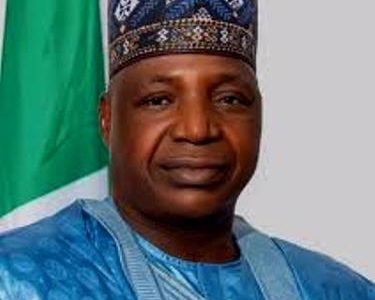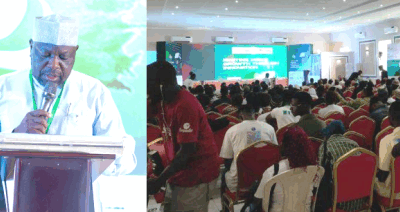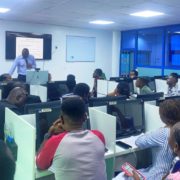Market is bound to explode for Geographic Intelligence
Geographic Information System (GIS) can be used to address issue of security in Nigeria and to also enhance other services says Chief Executive Officer of Spatial Technologies Limited,IRETI AJALA to IT Edge News ANTHONY NWOSU. AJALAalso speaks on the increasing dependenace of corporate bodies on data from digital street map to monitor their organisations’ operations in scattered locations beyond the office spaces.
What is Spatial Technologies Limited (STL) offering Nigeria and what is the relationship with United Bank for Africa (UBA)?
UBA is one of the largest financial services institution in West Africa with more than seven million customer accounts, and operations in 19 African countries, as well as presence in New York, London and Paris. UBA realized that banks in the Nigeria of today must be market driven and market responsive in a highly competitive market. The success of such a financial institution depends heavily on its approach to data management, customer relation management. By adding a geographic component called “Location” to its database, UBA can gain an enormous advantage in many ways. The objectives of the project were: to develop a systematic or scientific methods of locating branches and ATMs for profitability, to provide a visual and scientific process to locating smaller sized branches “Spoke” around existing Large Branches “Hubs.” This has been an enabler to the realization of cost saving of over N9billion on branch expansion in Nigeria.
STL offers mapping services and satellite based communication system, how does this servicerelate to financial organizations like UBA?
This is a nice question. The pilot project started with Lagos and is expected to spread later to other parts of Nigeria. Under the contract, STL provided the digital street map data of Lagos covering Lagos metropolis, Ikorodu, Epe, Badagry and Sango Otta. STL also mapped the locations of all existing UBA’s branches and ATMs including those of other banks that UBA recently acquired as well as mapping the locations of all branches of UBA’s five most important competitors throughout Lagos State and Sango Ota, Ibafo, Mowe.The contract also covered the mapping of several Points of Interest (POIs) that were considered important considerations when choosing an optimum location for a new UBA branch. The categories of POIs mapped included schools, shopping malls, restaurants, “open-air” markets, hotels, etc across Lagos STL also geocoded the location of over 1,000,000 UBA’s customers based on their residential addresses into a GIS format. This made it possible for UBA to see for the first time the geographic spread of over one million customers within the project area on an interactive street map of Lagos. Another deliverable was the demographic data of Lagos categorized into LGAs (Local Government Areas) projected from the Nigeria’s 2006 census data.The project is expected to assist UBA PLC in the following strategic analyses:Bank Network competitiveness/optimization analysis: A geographic approach to analyzing where new branches and ATMs should be located and what factors affect either positively or negatively their operation and profitability.Competitors intelligence mapping: A structured approach using Geographic Intelligence to analyze the geographic location of competitors’ branches and ATMs to evaluate the effectiveness of all UBA branches in the face of competition; customer management identification and targeting analysis: This type of analysis would be helpful in evaluating the geographic distribution of UBA customers with respect to the branches and how to position UBA branches to serve them better and demographic analyses. Following the development and implementation phase of the complex solution, STL provided ongoing enhancement and on-site support over a period of several months and quality MapInfo training to UBA’s staff that were expected to use the solution to deliver informed business investment decisions. The project employed well-proven location technology platform –MapInfo. MapInfo Professional is a recognized brand in the location technology all over the world and was selected for this project based on its ease of use, richness of depth, robust Database Management System (DBMS) functionality and superb cartographic capabilities.This is the first GIS (Geographic Information System) implementation at this scale by any financial institution in Nigeria. This project also marked the first successful attempt by any private company in Nigeria to geocode addresses in a consistent way throughout the history of mapping in Nigeria. To be able to achieve this feat, STL had to build a complex AI “Address Infrastructure” for Lagos which is not an easy task especially considering the fact that the addresses in Lagos is not straightforward because of the inconsistency in the house numbering.
Presently, you are doing a project called Lagos location. What does it entail?
Lack of intelligent location data to underpin consistent decision making process and competitive intelligence on the Nigeria retail market including the issue of lack of adequate infrastructure continue to plague Nigerian retail industry. This had definitely affected the use of location analyses in several strata of Nigerian retail industry.The contract included the supply of over 50,000 points of interest with several classes covering Lagos metropolis, Lagos street map data, and administrative boundaries. The contract allows Getchee to add proprietary intelligence to the data to meet its unique requirements.The value of STL’s mapping capabilities continues to increase in the marketplace across Nigeria and Africa as more public and private sector organizations and market research solution providers embrace the power of our intelligent map data powering Nigerian retail location analytics.STL’s unique mapping technology enables our customers to address the area of interest that they want to map with pinpoint accuracy. We are so proud to have collected and delivered intelligent location datasets to Getchee so that this solution provider can convert into a unified solution that derives the data-driven answers they require to power their entry into the Nigerian market.
How can Geographic Information System (GIS) benefit Nigerian government and other cooperate organization in sub Saharan Africa ?
GIS provides the platform to address issues or challenges underpinned by inherent location or geography. Let us take our address system for instance. Nigeria’s addressing system is currently dysfunctional, chaotic and very primitive. We relate addresses to a major landmark because there is no functional mechanism on ground to introduce the uniqueness in addresses. It is very common for someone in Lagos to give his address as 14 Adana Close, behind the fire station near Ojuelegba. Although there is nothing inherently wrong in relating an address to a major landmark, it however makes it extremely difficult when your commercial business depends on the spatial element of your customers’ addresses. NIPOST introduced the Nigerian Postcode System in 2000. But many Nigerians are still not familiar with the postcode. NIPOST’ postcode data is still very unpopular for so many reasons.
A consistent and robust postcode data could form the bedrock of other intelligence data that can underpin govternment’s plans. This would help government plan adequately for infrastructures effectively e.g. how many people living in Postcode 1108291716 have access to clean water? Who are within the catchment area of the general hospital in postcode 6382822910? INEC may want to know how many voters are registered to vote within postcode 3982736363, this would enable them plan adequately for 2015 election. FRSC just did a profile of fatal accident across the country and noticed that the number of these accidents in postcode 7281920202 is relatively higher than the rest of the country. This could form the basis of investigation to find out why this is so and to embark on a safe driving awareness targeting this specific geographic area. NCC noticed that 45% of fraudulent or 419 calls in Lagos originates from postcode 25363732. Etc,Supposing NCC could attach a pair of geographic coordinates to each address in the GSM SIM registration database! This will automatically enhance the ultimate usefulness of the database. A typical query could be shown the location of Nigerian GSM subscribers living within a radius of 5km of a GSM base station. At the moment, the SIM registration database that cost over N5billion has no such capability or intelligence.As you can see, a consistent and intelligent National Address Infrastructure (NAI) can underpin economic planning both at national and micro level. This means that postcode and NAI has tremendous national importance going beyond just mail sorting or delivery.
Nigerian Intelligent Routing Map Data is an interesting area of Geographic Info System and Geographic Positioning System, how can your solutions be of immense assistance to the government? Especially with our security challenge?
My company Spatial Technologies Ltd (STL) is Nigeria’s foremost mapping and GIS consulting company with its main office in Lagos. STL specializes in developing geospatial databases and solutions about Nigeria for the Nigerian market. Nigeria undoubtedly has the highest number of vehicles in the West Coast of Africa. A statement in 2009 by the Chartered Institute of Logistics and Transport revealed that more than seven million vehicles operate on Nigerian roads on a daily basis.Nigeria therefore represents a huge untapped market for car navigation products with the market capitalization potentials reaching the N320billion per annum mark within the next decade. It is therefore safe to say that the Nigerian car navigation market is largely dormant waiting to explode -no wonder TomTom and Garmin are silently but viciously fighting each other for the soul of Nigerian car navigation market.In the absence of intelligent car navigation products, Nigerian motorists depend on their wet knowledge of their local areas when driving from one point of the country to the other. This had resulted in a situation where some roads are over used and others are under used. The overused roads are costing the government enormous resources to repair, maintain and be kept in a good condition. There is also the issue of traffic management. Repairs on a particular road could help the traffic management authorities in re-routing traffic through other roads. But when this re-routing is largely dependent on local knowledge of the area, it inhibits the exploration of other routes not part of the local body of knowledge. Developing intelligent and consistent routing data therefore holds great benefits to the government and the Nigerian motoring population.Intelligent routing map data of Nigeria which is an important component of a car navigation solution is not widely available; this had therefore greatly stunted the penetration and market growth of car navigation products in Nigeria. There are few mapping companies in Nigeria with the requisite technical and managerial skills required to develop world-class routing map data and consistently update the data at commercial level.STL has extensive experience in collecting and processing data from geographic information sources as digitized maps, satellite imageries and aerial data. STL is the proud recipient of the prestigious RIMA Foundation Award for the best GIS solution provider in Nigeria. STL’s GPS Navigation data is an intelligent and detailed street centerline database that details the road network across Nigeria in a seamless digital (vector) format. In addition to street names, suburbs and road hierarchies, it also includes speed, traffic direction, one-way, and other routing functionalities. Our GPS Navigation data product is used for vehicle tracking that requires routing capabilities and is ideal for in-car satellite navigation. Corporate and government users who require maps and data for logistics, transport planning, vehicle dispatch, vehicle tracking, asset management, traffic modelling, or market analysis will also find the data very useful.




























